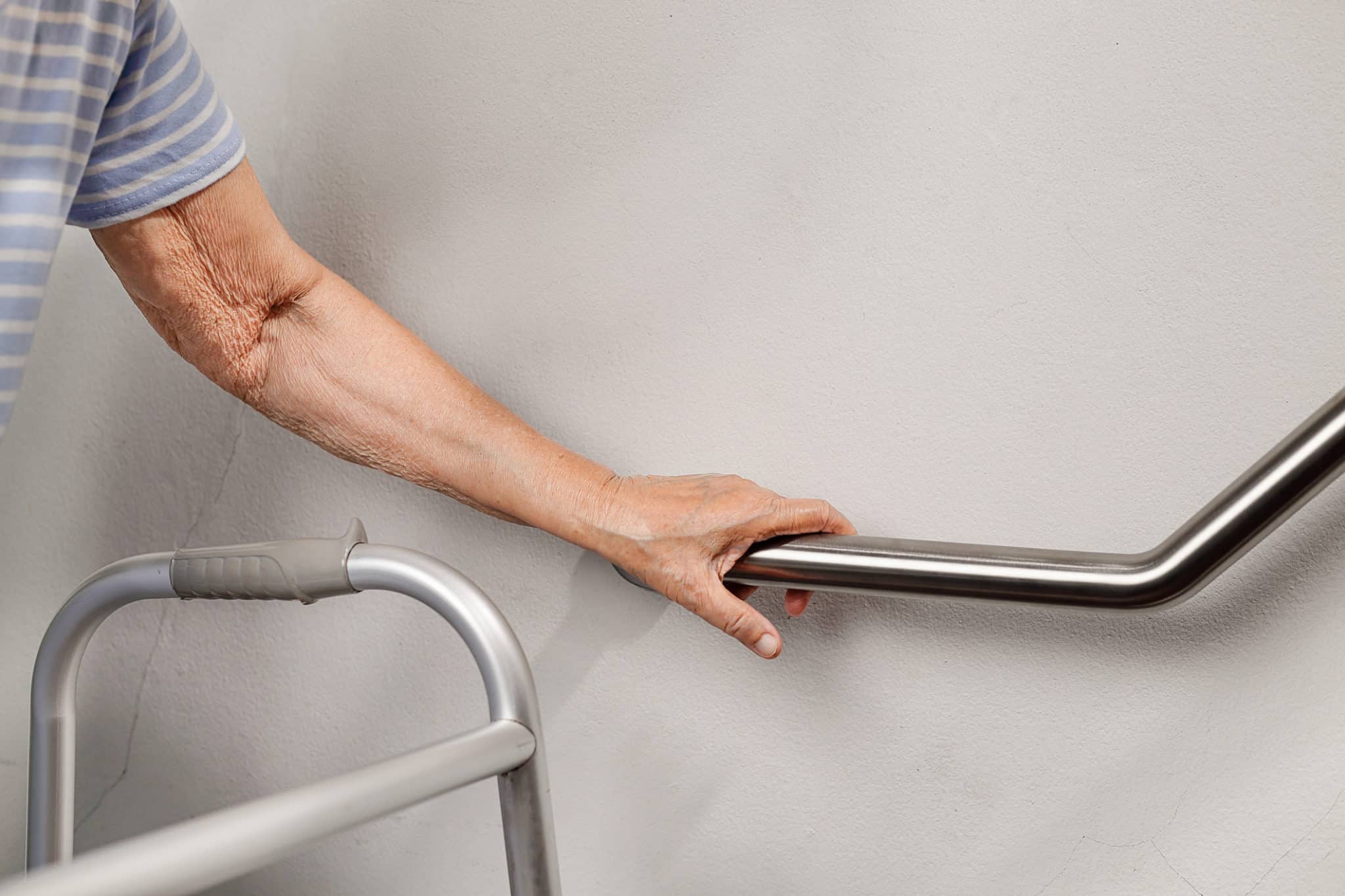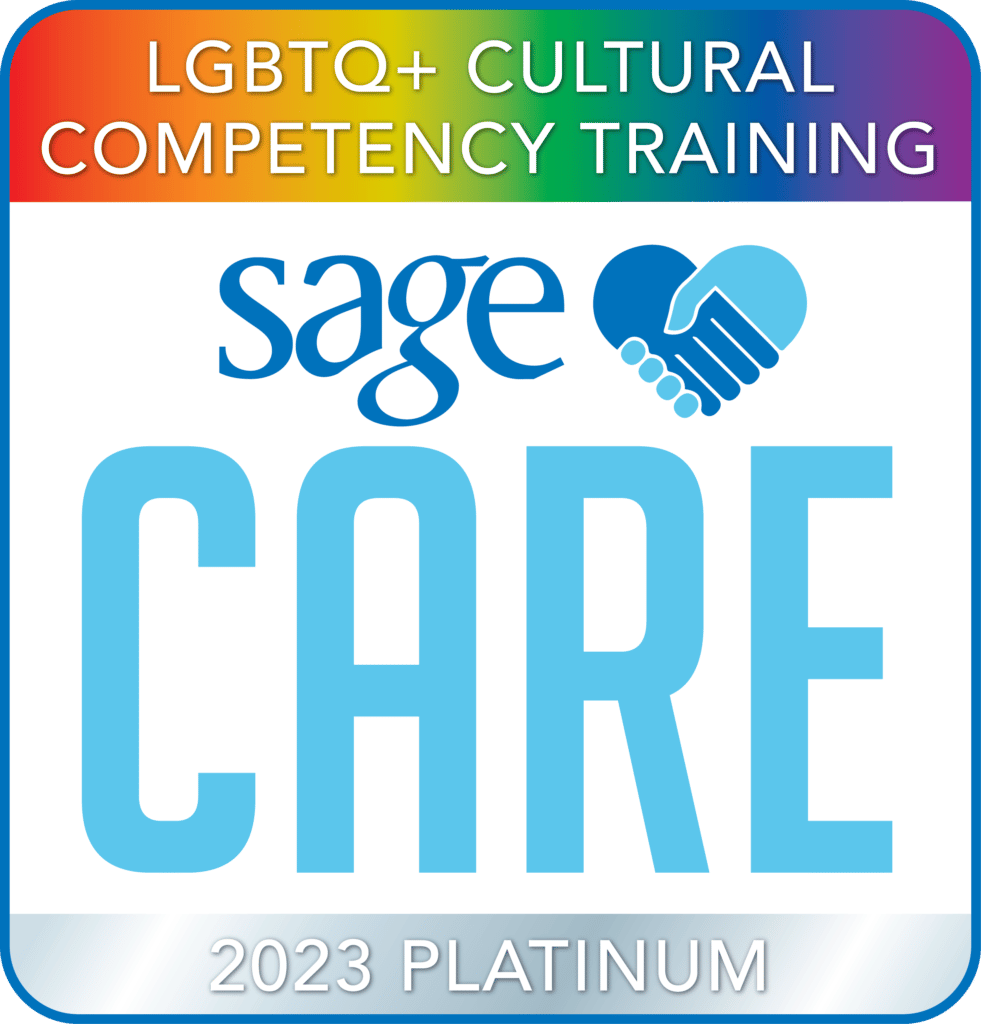Senior Independence and Safety Can Go Hand-in-Hand

Home safety is not about restricting seniors – in fact, it’s an essential part of helping seniors live as independently as possible! This National Safety Month, the HomeWorks in-home senior care team is sharing important information and tips for senior safety in the home.
Make Preventing Falls a Priority
According to the National Council on Ageing, 1 in every 4 Americans over the age of 65 falls each year. These aren’t the usual bumps and bruises we all get when we’re younger – in fact, falls are the leading cause of fatal and non-fatal injuries in seniors.
Seniors also tend to experience more severe injuries from a fall, like fractures, head injuries, cuts and heavy bruising and have a more difficult time recovering from fall injuries. For many seniors, this means having to spend time in hospital where it’s easy for those with weakened immune systems to contract secondary infections like pneumonia or even COVID-19.
This makes it very important to do everything you can to prevent falls. And while it’s unlikely that you can stop every fall from happening, taking precautions will dramatically lower your loved one’s risk of a severe fall or injury, helping to keep them active, healthy and independent.
What Causes Seniors to Fall?
There are a lot of reasons why seniors are so vulnerable to severe falls, from poor eyesight and slower reflexes to low blood pressure, muscle weakness and complications from underlying medical conditions.
Simply getting up too quickly from a seated or lying down position can cause a drop in blood pressure that causes muscles to become weak and can trigger a fainting episode. Some medications can also cause dizziness or sleepiness as a side effect, which can contribute to a fall.
Seniors can also fall due to confusion. With medical conditions like Alzheimer’s or dementia, it’s common for patients to wake up and not know where they are, making it easy to take a fall or knock into furniture.
Tips for Preventing Falls at Home
- Promote physical fitness – Staying fit keeps muscles strong and helps tendons and joints stay flexible. A good exercise program (tailored to your loved one’s abilities and interests) is an effective way of boosting the immune system as well as keeping the body and bones strong. Remember to combine strength and cardio activities for a well-rounded approach. A physical therapist or seniors home care services provider can develop a program to help your loved one stay physically independent and make their daily routine much easier and more enjoyable!
- Test vision and hearing – Deterioration in vision and hearing can make someone more vulnerable to falling, so keep up to date with annual tests. Get a couple of pairs of prescription spectacles and always ensure your loved one makes a habit of wearing their glasses and hearing aid.
- Know their medication – Check all medication for side effects like dizziness and sleepiness and work with your loved one’s physician to either manage these medications effectively (for example, taking them before bed not in the morning, if possible) or find alternatives.
- Adapt their home environment – Many falls happen in the home, so small changes to this environment can make a big difference. Start by removing tripping hazards and ensuring there are clear, wide paths from room to room. Install good lighting (especially on stairs) and move your loved one’s bedroom downstairs if needed. Install grab bars in the bathroom (by the tub, toilet and shower), secure or remove rugs and loose carpets, and make sure bedside lighting is accessible from the bed and working. With a few affordable changes, your loved one can keep enjoying their home and their independence in safety!
- Check their wardrobe – Go through your loved one’s wardrobe for them and help them sort it thoroughly. Their everyday shoes should have good-quality rubber soles for grip, offer proper foot support, and be easy to put on/take off (Velcro is often easier than laces). Pants and skirts that are too long can also be tailored to the correct length. This will make going for walks, visiting friends and going to the shops so much easier!
When seniors become afraid of falling, their independence and quality of life can be affected. Many seniors give up their favorite activities, stop visiting friends, or become housebound – and that is no way to live. With a few simple adjustments to their home, lifestyle and care routine, we can help prevent dangerous falls while supporting a full and happy life!
Safe In-Home Senior Care That Promotes Independence
The United Methodist Communities HomeWorks program was developed specifically to provide high-quality home care for seniors, promoting safety and independence by providing targeted seniors home care services.
We tailor our services to your loved one’s needs, providing the full range of in-home senior care services, from companionship and assistance with daily tasks to full-time and nursing care. As one of the leading senior independent home care agencies in New Jersey, we have implemented strict protocols to ensure that our patients get the same high-quality, essential care and companionship they need while preventing the spread of COVID-19. As front-line workers, we’re here to support our community and keep you and your loved ones safe.
For more information on our senior independent home care services, please contact us today and chat with our team.






